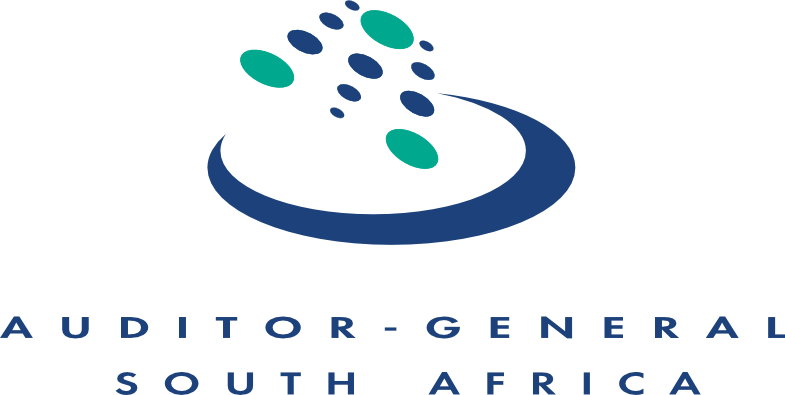
It is imperative for institutions such as ours to work with the rest of
those in the accountability ecosystem to strengthen trust in public institutions
Tsakani Maluleke
Auditor-General
Shifting public sector culture
When I envisaged our #cultureshift2030 strategy, my overall aim was to strengthen these democratic values and principles by shifting the public sector culture to a state where it is consistently characterised by performance, accountability, transparency and integrity, as experienced by the citizens of South Africa. At the heart of this ambition lies the important principle of trust.
Trust is the foundation upon which families, organisations and entire nations are built. It is living up to, and being willing and able to deliver on others’ expectations, while believing that they will also deliver on our expectations of them. When trust is lost, so are the relationships and institutions that underpinned it, and peace, prosperity and stability are quick to follow.
A relationship built on trust between citizens and their government is critical to maintaining social cohesion, keeping the cost of living down and realising national aspirations. When citizens pay their taxes, they entrust those funds to government in the belief that government will use the funds productively towards delivering public services.
When citizens choose to vote they trust that their votes will be counted and that the process of elections will be fair. When parents send their children to school, they do so trusting that their children’s lives will be better served with a quality education paid for by the funds entrusted to government. When trust in the institutions of government collapses, the fragile peace and order that holds society together is also disturbed, sometimes irreparably.
Trust is therefore the connective tissue that holds society together. Through a mutually reinforcing relationship between setting expectations and delivering on those expectations, trust is built, nurtured, grown and maintained. It strengthens the relationships and transactions that keep society stable and moving steadily but surely in the direction of its aspirations. The absence of trust is costly, individually and as a society. So it is imperative for institutions such as ours to work with the rest of those within the accountability ecosystem to continue strengthening trust in public institutions.
I am comfortable that my office’s investment in understanding the demands of the culture shift journey, creating the tools necessary to give effect to this movement, and being clear on measuring the change, will empower our accountability ecosystem to make this change a reality. The essence of this investment sits in the #cultureshift2030 strategy’s focus on insights, influence and enforcement.
Insights
Elevating insights from my office’s audit work to positively influence the work that government does to enhance the lived realities of South Africans, represent the traditional domain where public sector auditors normally excel. Our enabling legislation – the Public Audit Act – provides us with a solid foundation, an extensive audit mandate and a comprehensive scope for this work. I trust that roleplayers in the accountability ecosystem that have engaged with our general reports in recent years will attest to the deepening insights that speak directly to the experiences of those around us and empower government to address the aspirations and needs of citizens in a focused, diligent and effective manner.
The emphasis in the past year has been to give further structure to our audit work by using multiyear planning, formally soliciting commitments to act on these insights and tracking success within the accountability ecosystem with implementable key audit recommendations. These developments position the office to continue deepening insights as a basis for informing the culture shift journey.
“Based on the survey outcomes, I am pleased that our stakeholders have a high familiarity and awareness of our role and responsibilities as the AGSA and believe that we execute our mandate effectively and professionally.”
Influence
While we continued to produce strong insights, these can only have the long-term impact of improving the lived realities of ordinary South Africans when our stakeholders begin acting on them. In 2023-24, our audit teams spent a significant amount of time working on influencing our key stakeholders to move towards action.
This area still needs a lot of work. A key enabler for accomplishing this objective comes from the results of a recent external stakeholder perception survey that we conducted. Based on the survey outcomes, I am pleased that our stakeholders have a high familiarity and awareness of our role and responsibilities as the AGSA and believe that we execute our mandate effectively and professionally. More importantly, most of our auditees confirmed that when they implemented our recommendations, they were able to improve their day-to-day operational effectiveness and efficiency, translating into better business outcomes. We take these insights very seriously and use them to refine and enhance our abilities to effectively partner with the accountability ecosystem to build the South Africa we all want.
Enforcement
Enforcement represents the latest addition in our arsenal to help restore accountability and strengthen public resource management. I am encouraged by how far we have come with these new powers to identify and act on material irregularities. Looking at the past few years, I am proud that, in many instances, our work has inspired very different, constructive behaviour among accounting officers and authorities, to either prevent losses or public harm, or to trigger the recovery of money lost.
At the same time, I remain conscious that having to issue a notification of a material irregularity (MI) unfortunately implies the failure of the normal, legislatively designed accountability mechanisms. I also recognise that failures among accounting officers and authorities to take action to address the MIs add to the seriousness of the problem.
Though this remains a powerful tool to address accountability failures, and we will continue to deploy this mechanism, my sincerest wish for the South African public sector is to rather live up to the expected ideal of a public service, as expressed in section 195 of our Constitution.
“This annual report is testament to this commitment, as we reflect on our success against our predetermined performance objectives and our financial results.”
Lead by example
It is my firm belief that we cannot inspire positive change without showing that the ideal state of affairs is indeed possible. My office therefore remains committed to leading by example. This annual report is testament to this commitment, as we reflect on our success against our predetermined performance objectives and our financial results. I am very proud of our ongoing intent to demonstrate that the principles of performance, accountability, transparency and integrity can indeed underpin the daily running of the public sector.
An element of our envisaged organisational performance – the outcome of our engagement files reviews – has had less than stellar results.
I am, however, confident that the overall system of quality management remains strong and that this will assist the organisation to take remedial action in a focused and speedy manner. My detailed reflections are contained in section 5, dealing with governance reports.
The significance of leading by example has been recognised beyond our borders as the AGSAwas appointed external auditor to entities such as the United Nations Educational, Scientific and Cultural Organisation (Unesco), the International Centre for Genetic Engineering and Biotechnology (ICGEB) and African Organisation of Public Accounts Committees (Afropac). My office will continue to proudly fly the South African flag in the international arena, displaying our capability as a supreme audit institution.
Conclusion
With the appointment of South Africa’s 7th administration, my office has an immediate focus on the induction of these accountability ecosystem members. Our aim is to familiarise the new administration with their legislative roles and the role of the AGSA, especially as it relates to their own responsibilities. It is also an opportune time to introduce the new members to our #cultureshift2030 strategy, and inspire them to contribute to its execution for the benefit of auditees, their constituents and the country as a whole.
As we face up to the challenge posed by our 2024- 25 commitments, I thank my office’s leadership and their teams for the work done over the past year to implement our strategic targets. My commitment is to work tirelessly to help my teams positively influence a shift in public sector culture to one that is characterised by performance, accountability, transparency and integrity.
Tsakani Maluleke
Auditor-General


